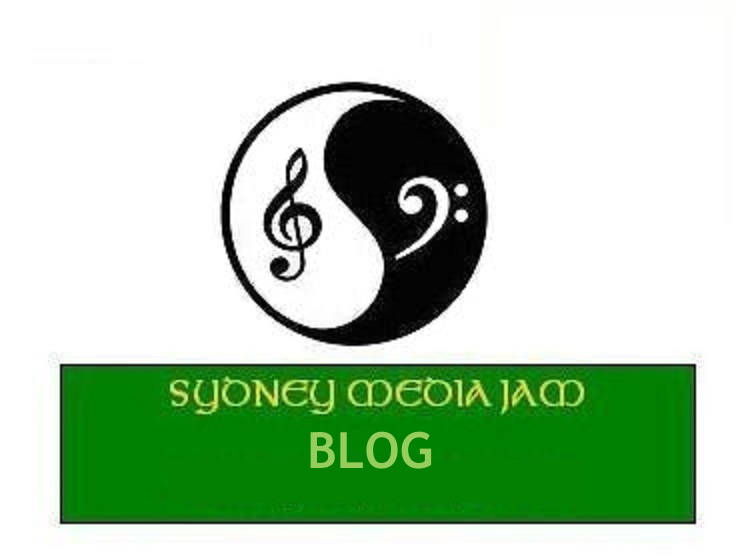This is a thing I wrote for Digital Journal back in 2013. It started by following the idea of the title and evolved from that into this thing. At some later point, I tied it to my book The Creative Process. I’ve kept the text in its original 2013 format.

This is the original article:
The New York Times featured a piece on its Room for Debate section recently about the “death” of creativity. Several people provided perspectives on the problem. The trouble is that channelling it into specific theories can reduce the value of the discussion.
http://www.nytimes.com/roomfordebate/2013/09/15/is-creativity-endangered
This is one of modern society’s least understood issues. “Creativity” can be expressed as anything from business innovation to the more blue sky areas of “modern” art, in which inflicting someone with a sort of artistic jingle in some medium is considered creative. What’s rarely mentioned is the role of creativity in society.
Every single thing everyone owns is the result of some sort of creativity. Your socks were designed by someone. So was your coffee cup. That’s basal creativity, function-related, and it worked well enough for you to buy your socks and your coffee cup. Just about everything you look at in the artificial human world was “created” by someone, whether they were awake or not at the time.
The people who do this work would be at least slightly offended by the theory that they’re not creative people. They’d point out that functional creativity, like designing socks and coffee cups, limits what they can create to a large degree. Even business people understand this sort of creativity, to a degree.
As a society, however, the creativity is limited by functions. What’s the social-functional use of a ballet, an opera, or a painting? Can you wear an opera or drink a ballet? For creative people this very common, almost subconscious line of logic is excruciating.
Face it: You’re more likely to buy a pair of socks than a ticket to an art show. You own more socks than fine art. So the society and culture emphasizes, without even trying, lower levels of creativity. “Innovation” has become just another buzzword, a synonym for “new”, which is both the wrong synonym and usually means that people don’t recognize rehashes when they see them.
The war against creativity
This is a pet subject of mine. My experience may be atypical, I hope it is, but all I usually see are obstacles to creativity. Real creativity is more like research than the media picture of some micro-brained dweeb suddenly having an epiphany and producing yet another coffee cup/building/magazine. Creative thinking moves into unexplored areas by definition.
Intentionally or otherwise, this society is anti-creative. I’d say it’s intentional. The sheer hostility to new ideas can be staggering. People actively oppose/sideline/find excuses not to even consider new ideas.
There’s a reason for that. Creativity has an image problem among illiterates. They distrust new ideas, partly because of their aversion to learning new things, and largely because new things create new work. (In fairness, new things can create new problems, too, but let’s be honest; problems are usually not solved by laziness, rather than lack of intelligence.)
So the equation is:
Creative = new = requirement to learn and understand = do anything else rather than do that.
The image equation results in minimal effort to understand creative ideas. Add to this the almost kindergarten levels of comprehension in which people expect to be spoon-fed information to recite. That’s usually what you get: An established norm, regurgitated as some sort of fundamental truth by people who don’t even understand what they’re saying, about 90% of the time.
This is the real war against creativity and the combat is pre-programmed. Consider how many quotes, clichés and recycled statements you see used as the basis for someone’s “opinion”. It boils down to the fact that people can’t even be bothered to have their own opinions. They synthesize some collection of barely-understood information and use that as an opinion. That’s anti-creativity. People who can’t even be bothered to create a perspective for themselves, in effect, are expected to comprehend creativity as a principle. They can’t do it. They don’t have the personal software.
Creativity, defined, can be a lot of things, but its common factor is perspective. All creative work involves a new perspective on something.
The creative dichotomies
I published a new book recently called The Creative Process. Exactly why I published it in an anti-thought environment like this is anyone’s guess. Given that 112 pages of me on the subject of creativity is a pretty brutal experience, I’m not expecting people to be converted to a liking of creativity on the basis of this book.
What I wanted to do was put people in touch with their own creativity. The fact is that everybody is creative to some degree, consciously or otherwise. Creativity is in fact a survival skill. People create their own home environments, for example, ranging from the banal to the baffling and beyond. The irony is that their creativity is largely unrecognised, even by themselves.
The book is written as a series of lecture sessions, each with an exercise at the end. The first of them is “name everything you love, then try to put them into ten words in a coherent sentence”. Creativity is based on managing the physical issues of creation. The arbitrary ten words is included to crank up the need for efficiency in creative expression. Not a gimmick, I’m sorry to say.
Ironically, the “recognised” form of creativity, which involves attacking people with new books, art, music, tech, whatever, is even less aware of its true nature. People are taught “how” to write, play, etc., and think it’s normal.
Sure, you can write a book like a machine. I could tell you how to create a “novel generator” using software, a database, and a total lack of originality, like most publishers do these days. It’s “how” these things are done. It also has nothing to do with creativity in any sense. “Cliché meets cliché” is the polar opposite of creativity. The only good thing about a novel generator is that it would kill off those hacks pretending to be writers.
People “play” premade music these days, using copyright-free patches and loops to avoid lawsuits, not to produce decent music. Creative? No. Called creative? Yes.
This is the built-in dichotomy in any form of creativity these days. Creativity is on a choke chain comprised of behavioural issues and commercial norms. Every creative product is evaluated by arguably the least imaginative society in history. It doesn’t matter how good an idea is, it has to go through the obstacle course.
If you create a source of eternal happiness, you’ll have to get in line to get anyone to look at it. You’ll need an agent, a publicist and someone who knows how to pick up a phone and call their old college buddy to get it looked at. They’ll talk about intellectual property and patents, not the actual creative product. The evaluation process is also totally anti-creative.
So you’ve invented eternal happiness, so what? We have to pay to get it on the market. It’s not our core business. We have guidelines for new products, even the ones we’ve never heard of, and particularly the ones we don’t understand.
How can we sell something called “eternal happiness”, anyway? It might infringe someone’s trademark. Who needs this product? Housewives, or someone else we’ve ever heard of? No? The research groups don’t indicate any demand? Forget it; we’ll go with that new game that makes beeping noises.
This is the danger of not understanding creativity. Any new idea or creative product has to be understood to take hold. There was a famous study of a female monkey in Japan which learned how to wash her food. She’d do it, and the other monkeys caught on. In about 5 years, all the monkeys were doing it.
Now a quick, and hopefully effective, comparison between those monkeys and human society: Creative processes built civilization and technology. Not accountancy, not executive enemas, nor other corporate policies, creativity. 5000 years of recorded history later, creativity is fighting for its rights against ignorance.
Put it this way- I expect The Creative Process to sell its usual two copies, but I couldn’t have not published it. I’d have never forgiven myself for not trying.
